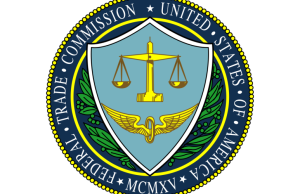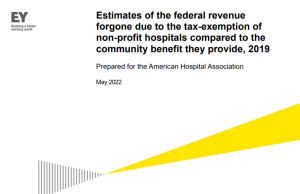Nonprofit healthcare organizations could start seeing their tax-exempt status challenged due to questions about executive compensation if recent legal developments in Pennsylvania and New Jersey are indications.
The latest case involves a nonprofit healthcare corporation in Pennsylvania, where a state appeals court rejected the property tax exemption sought for four suburban Philadelphia hospitals whose executive pay and bonuses the court found to be excessive. The ruling by the Pennsylvania Commonwealth Court applies only to local and county property taxes, not to the parent health organization’s designation as a federal 501(c)(3) nonprofit.
Tower Health System, based in Reading, Pennsylvania, hasn’t said if it will appeal the ruling to the Pennsylvania Supreme Court but must decide by the 30-day deadline of March 12. A spokesperson for Tower Health declined to comment to The NonProfit Times.
The ruling follows a pair of lower court decisions in October 2021 that granted Tower Health a property tax exemption for one hospital and denied it an exemption for three other hospitals, all four of which had formerly operated as for-profit institutions.
Tower Health, formerly known as Reading Health System, sought the exemptions after purchasing the four hospitals in 2017 from Community Health Systems, a for-profit entity. Four local school districts later challenged the exemptions, leading to the split trial court decisions that culminated in the appeals court ruling earlier this month.
The linchpin of the Feb. 10 ruling turned on what judges called the “eye popping” compensation paid to Tower Health executives along with its policy of tying 40% of executive bonuses to the hospitals’ financial performance. The judges found this indicative of a private profit motive at odds with Pennsylvania state law that requires nonprofits to operate as “institutions of purely public charity” to receive an exemption.
Tower Health’s president and CEO earned just shy of $2.5 million in total compensation for the year shown on its most recently available federal Form 990. The same filing showed four other executives were paid more than $1 million, another four earned more than $500,000, and an additional three received more than $300,000.
The ruling directly impacts Pottstown Hospital (in Pottstown) and Phoenixville Hospital (in Phoenixville, Pa.). The other two hospitals, Brandywine Hospital (in Coatesville) and Jennersville Hospital (in West Grove), have since closed, with the latter being sold last year by Tower Health to another for-profit organization that intends to reopen it.
In New Jersey, nonprofit hospitals began making “community service payments” in lieu of property taxes to cover the cost of police, fire and other local services under a state law passed in February 2021. The law stipulated that they begin paying local and county governments $3 per day for each hospital bed and $300 per day for each satellite emergency care facility, subject to a 2% annual increase for inflation.
The law followed a landmark 2015 New Jersey Tax Court ruling that found that the nonprofit Atlantic Health System operated Morristown Medical Center, in Morristown, as a largely for-profit hospital with “labyrinthine corporate structures” designed to reel in profits in a manner at odds with the “early origins of nonprofit hospitals as charitable alms houses providing free basic medical treatment to the infirm poor.”
As in the Pennsylvania case, much of the New Jersey Tax Court ruling turned on Atlantic Health’s executive compensation including the approximately $5 million paid to its president/CEO at the time and the more than $500,000 paid to several other executives. The judge also rejected comparisons to salaries paid by other peer group hospitals, which he called a “wholly self-serving justification” for the health organization’s executive compensation.
The ruling triggered a flood of lawsuits by other towns seeking tax revenue from their local hospitals until the 2021 law was enacted.











